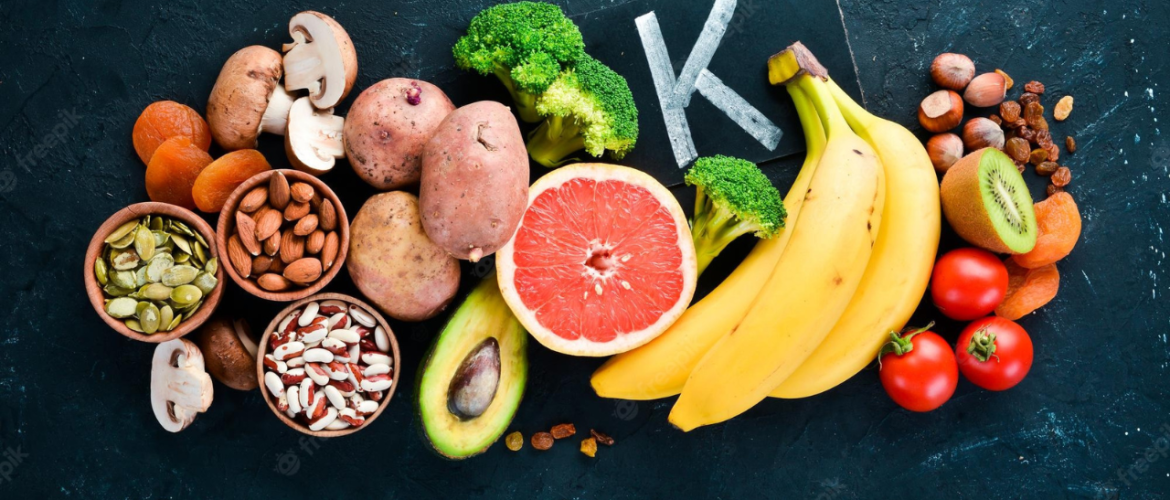Vitamin K helps blood clotting and limits blood loss if we are injured.
Vitamin K helps the blood clotting process to take place well and limits the amount of blood lost if we are injured. Therefore, if the body lacks vitamin K, the blood will have difficulty clotting and can be life-threatening. But in addition to that role, vitamin K also has many other effects that are rarely mentioned.
Vitamin K creates the necessary glue for bones
With the ability to activate ostecalcin (a protein that acts as a glue to attach calcium to the skeleton), vitamin K plays an important role in improving bone density and preventing osteoporosis.
Providing enough vitamin K in children helps strengthen bones and limit the risk of osteoporosis in old age. A new study published in the British Journal of Nutrition (with the participation of 310 children, average age 11) said that when measuring the mineral content in the children’s bones, they discovered that: calcium cannot participate in the metabolic process to create a strong skeletal system if the children’s diet lacks foods containing vitamin K. The role of this vitamin was further demonstrated when the research team supplemented the children with vitamins, especially vitamin K. In just a short time, 90% of these children had a significant increase in bone mineral content.
Especially during important transitional stages (first years of life, puberty…), bone development often cannot keep up with the growth rate of the child’s body. Therefore, a lack of vitamin K during these stages can easily lead to the risk of reduced bone density and osteoporosis when reaching adulthood.

Vitamin K1 is abundant in fruits and vegetables.
Is an emergency “bandaid”
You may not know what vitamin K looks like, but in fact, we still enjoy its benefits every day without even knowing it. Starting with something as simple as accidentally cutting your hand, vitamin K in the body helps you stop bleeding.
The phenomenon of spontaneous blood clotting when injured is an extremely useful defense reaction of the body. It is the result of a series of biochemical reactions with the participation of many blood clotting factors, most of which cannot function effectively without vitamin K. Because of its ability to promote blood clotting, it is called the anti-hemorrhagic vitamin. A deficiency of this useful vitamin will prolong bleeding, causing danger to the body.
Because vitamin K is present in most common daily foods, under normal nutritional conditions, we rarely encounter vitamin K deficiency. The body only falls into a situation of vitamin K deficiency in the case of a disturbance in the intestinal microflora environment. At this time, the body will have signs such as nosebleeds, menorrhagia, bleeding gums, bleeding from the fundus of the eye, and wounds that are difficult to stop bleeding.
Helps protect the cardiovascular system, prevent cancer
Vitamin K2 is highly appreciated for its ability to prevent atherosclerosis in the elderly. This is because vitamin K2 participates in the formation of MGP (a protein that can inhibit the calcification of vascular walls), helping smooth muscle cells of the vascular wall to be healthy, and the vascular wall to maintain its inherent flexibility. When the body is deficient in vitamin K, 30% of pre-MGP will not be activated to turn into MGP. This means that the risk of calcification of the vascular wall also increases by 30% compared to normal people.
Where to find vitamin K?
There are three types of vitamin K: K1, K2 and K3. According to nutritionists, we should only supplement vitamin K1 (plant-based) or K2 (bacterial-based). Vitamin K3 should not be used because it often produces free radicals, so it should only be used under the guidance of a doctor. They also said that the safe way to supplement vitamin K is through food. Vitamin K1 is often found in dark green vegetables such as spinach, salad, cauliflower, and cabbage. Cruciferous vegetables are also a rich source of vitamin K. 100 grams of cooked kale will give you 817 micrograms of vitamin K, spinach, turnip greens, beets, and collard greens also contain a large amount of this nutrient. Parsley is also ranked among the top foods that provide this important vitamin. Just 10 sprigs of parsley can provide 164 micrograms of vitamin K. In addition, you can find it in mint leaves, basil, and garlic. Not only vegetables, many delicious and nutritious fruits also contain a relatively large amount of this blood clotting vitamin such as: plums, kiwi, avocado, tomatoes…
Vitamin K2 is also abundant in fermented cheese and fermented soybean products.
How much vitamin K is enough?
For each subject, age, and gender, a different amount of vitamin K is needed. Specifically, each day in adulthood, men should supplement 80mcg, women need 65mcg. For children from 0 to 6 months old, 2.0mcg is needed per day; children from 7 to 12 months old need 2.5mcg per day. Children from 1 to 3 years old need 30mcg per day; from 4 to 8 years old need 55mcg per day; 9 to 13 years old: 60mcg per day…
Mothers should note that infants are very susceptible to vitamin K deficiency because breast milk contains very little and the baby’s intestinal lining is not yet developed enough to supply vitamin K to the body. You should also note that too much vitamin K (exceeding 65mcg/day) is not good for pregnant women and breastfeeding mothers. People who have just had a stroke or are prone to blood clotting should only take vitamin K with the advice of a doctor.





